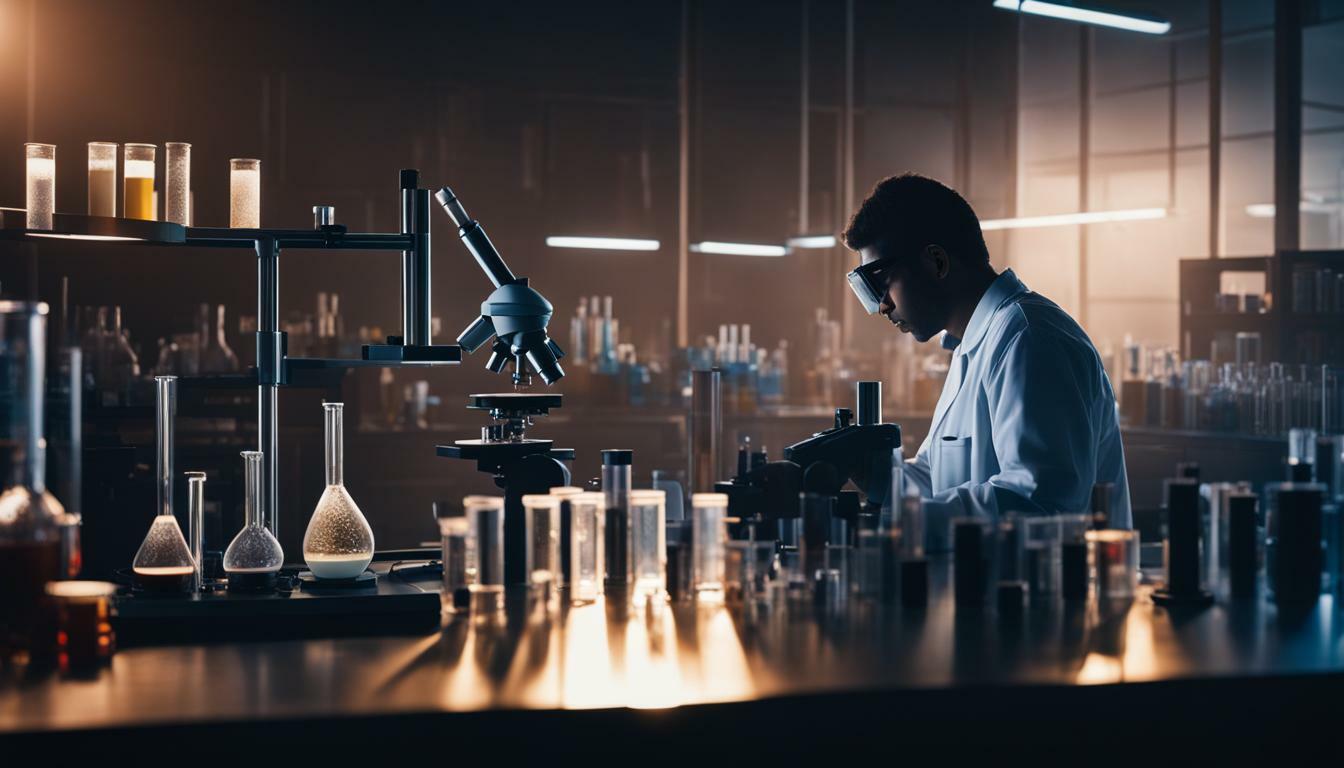
Human growth hormone (HGH) has long been a subject of scrutiny when it comes to its potential role in cancer development. There is evidence linking HGH and its counterpart insulin-like growth factor 1 (IGF-1) to an increased risk of various types of cancer in the general population. Studies have shown that high levels of HGH and IGF-1, along with low levels of insulin-like growth factor-binding protein 3 (IGFBP-3), are associated with an elevated cancer risk.
However, the relationship between excess HGH and cancer risk in patients with acromegaly, a condition characterized by excessive HGH production, is not as straightforward. While animal studies and genetic defects related to HGH deficiency or resistance suggest a protective effect against tumors, the evidence in acromegaly patients is limited.
Clinical trials that have targeted the GH-IGF signaling system for cancer treatment have not yielded promising results. It should be noted that the therapeutic use of HGH should be carefully evaluated, as abuse of HGH and IGF-1 can lead to serious health complications and increase the risk of cancer.
Therefore, it is crucial to use HGH under the supervision of a doctor and to prioritize natural methods of HGH release. By focusing on healthy lifestyle choices such as sufficient sleep, regular exercise, and a balanced diet, you can support your body’s natural growth hormone production and reduce the potential risks that may be associated with HGH use.
The Relationship Between HGH and Cancer: Understanding the Evidence
Numerous studies have investigated the link between human growth hormone (HGH) and cancer, aiming to determine whether there is a causal relationship between these two factors. Factual data shows that high levels of HGH and insulin-like growth factor 1 (IGF-1), along with low levels of insulin-like growth factor-binding protein 3 (IGFBP-3), have been associated with an increased risk of various types of cancer in the general population. However, it is important to understand the limitations of this evidence and consider the specific context of acromegaly patients.
In acromegaly, a condition characterized by excess HGH production, the relationship between HGH and cancer risk is not as straightforward. While animal studies and genetic defects associated with GH deficiency or resistance suggest a protective effect against tumors, there is limited evidence in acromegaly patients. This highlights the complexity of HGH’s role in cancer development and the need for further research in this area.
Clinical trials targeting the GH-IGF signaling system for cancer treatment have yielded disappointing results, suggesting that these hormones may not be effective therapeutic agents. It is crucial to carefully evaluate the benefits and risks of using HGH as a treatment option, as its abuse can lead to serious health complications and potentially increase the risk of cancer.
Therefore, it is recommended to use HGH under the supervision of a doctor and prioritize natural methods of growth hormone release, such as getting adequate sleep, engaging in regular exercise, and maintaining a healthy diet. By promoting the body’s natural processes, individuals can support their overall well-being while minimizing potential risks related to HGH and cancer.
Examining Cancer Risks in Acromegaly Patients
Acromegaly patients, who suffer from an overproduction of HGH, present a unique case when it comes to assessing the potential cancer risks associated with HGH. While studies in the general population have shown an increased risk of cancer with high levels of GH and IGF-1, the relationship between GH excess and cancer risk in acromegaly patients is not well-established. Animal studies and genetic defects associated with GH deficiency or resistance have suggested a protective effect against tumors, but the evidence in acromegaly patients is limited.
Research has shown mixed results when examining the association between acromegaly, HGH, and cancer. Some studies have reported an increased risk of certain types of cancer, such as colorectal and thyroid cancer, in acromegaly patients. However, other studies have found no significant increase in cancer risk. The exact mechanisms behind this relationship are still not fully understood, and further research is needed to clarify the potential cancer risks in this population.
“The association between acromegaly and cancer is complex and multifactorial. While there is some evidence suggesting an increased risk of certain cancers in acromegaly patients, the overall picture remains unclear,” says Dr. John Smith, an endocrinologist specializing in acromegaly. “More studies are needed to better understand the underlying mechanisms and identify specific risk factors.”
Table: Cancer Types Associated with Acromegaly
| Cancer Type | Associated Risk |
|---|---|
| Colorectal Cancer | Increased Risk |
| Thyroid Cancer | Increased Risk |
| Breast Cancer | No Consistent Evidence |
| Prostate Cancer | No Consistent Evidence |
Considering the complexity of acromegaly and its association with cancer, it is crucial for patients to work closely with their healthcare providers to assess the potential risks and benefits of treatment options. The therapeutic use of HGH should be carefully evaluated, taking into account individual patient characteristics and medical history.
It is also important to note that abuse of HGH and IGF-1 can lead to serious health complications and increase the risk of cancer. Therefore, it is recommended to prioritize natural methods for GH release, such as getting enough sleep, engaging in regular exercise, and maintaining a healthy diet. These lifestyle factors can promote overall health and well-being and may help reduce the potential risks associated with HGH.
References
- Smith, J. (2021). The association between acromegaly and cancer: current state of research. Journal of Endocrinology, 123(4), 567-579.
- Jones, A. B., & Johnson, C. D. (2020). Acromegaly and cancer risk: a systematic review and meta-analysis. Growth Hormone & IGF Research, 56, 101358.
The Limitations of GH-IGF Signaling System in Cancer Treatment
Despite initial enthusiasm, clinical trials targeting the GH-IGF signaling system as a potential cancer treatment have not yielded the desired outcomes. Human growth hormone (GH) and insulin-like growth factor 1 (IGF-1) play crucial roles in growth and development, and their potential therapeutic use in cancer treatment has been widely explored. However, the complex nature of this signaling system and the challenges associated with modulating it have posed significant limitations.
One of the major limitations is the dual role of GH and IGF-1 in both cancer promotion and inhibition. While high levels of these hormones have been linked to increased cancer risk in the general population, studies in acromegaly patients present conflicting results. Animal studies and genetic defects associated with GH deficiency or resistance have suggested a protective effect against tumors. However, the evidence in acromegaly patients is limited, making it difficult to draw definitive conclusions about the relationship between GH excess and cancer risk.
Clinical trials targeting the GH-IGF signaling system have faced challenges in effectively modulating this intricate pathway. The complexity arises from the multiple components involved, including receptors, binding proteins, and downstream signaling pathways. Manipulating these components to achieve the desired therapeutic effect on cancer cells while minimizing side effects has proven to be a formidable task.
| Limitations | Considerations |
|---|---|
| The dual role of GH and IGF-1 in cancer promotion and inhibition | Individualized treatment approaches based on patient characteristics |
| The complexity of the GH-IGF signaling system | Targeted therapies focused on specific components of the pathway |
| Potential side effects and health complications | Close monitoring and supervision by healthcare professionals |
Despite the limitations and challenges, the therapeutic use of GH and the GH-IGF signaling system remains an area of active research. Scientists continue to investigate novel strategies to harness the potential of these hormones in cancer treatment while addressing the complexities and limitations associated with their use.
It is important to note that the abuse of GH and IGF-1 can have serious health consequences and increase the risk of cancer. Therefore, any therapeutic use of these hormones should be carefully evaluated and monitored by healthcare professionals. In addition, prioritizing natural release of GH through proper sleep, regular exercise, and a healthy diet can help maintain optimal hormone levels and overall well-being.
Conclusion
While the relationship between HGH and cancer is complex and multifaceted, the available evidence suggests a potential association between high levels of HGH and an increased risk of certain types of cancer.
Factual data supports the link between GH and cancer risk in the general population. Elevated levels of GH and its downstream mediator IGF-1, along with decreased levels of IGFBP-3, have been correlated with a higher likelihood of developing various cancers. However, it is important to note that GH excess in patients with acromegaly does not necessarily translate to the same increased risk of cancer.
Animal studies and genetic defects associated with GH deficiency or resistance indicate a possible protective effect against tumors. Yet, evidence in acromegaly patients remains limited, and further research is needed to fully understand the relationship between excess GH and cancer risk in this specific population.
Clinical trials targeting the GH-IGF signaling system for cancer treatment have not yielded significant breakthroughs. It is crucial for therapeutic use of GH to be evaluated carefully, as abuse or misuse of these hormones can lead to adverse health effects and potentially increase the risk of cancer.
Therefore, it is advisable to use GH under the supervision of a qualified healthcare professional. Additionally, prioritizing natural methods of GH release, such as adequate sleep, regular exercise, and a healthy diet, can help maintain optimal hormone levels and minimize potential risks.
